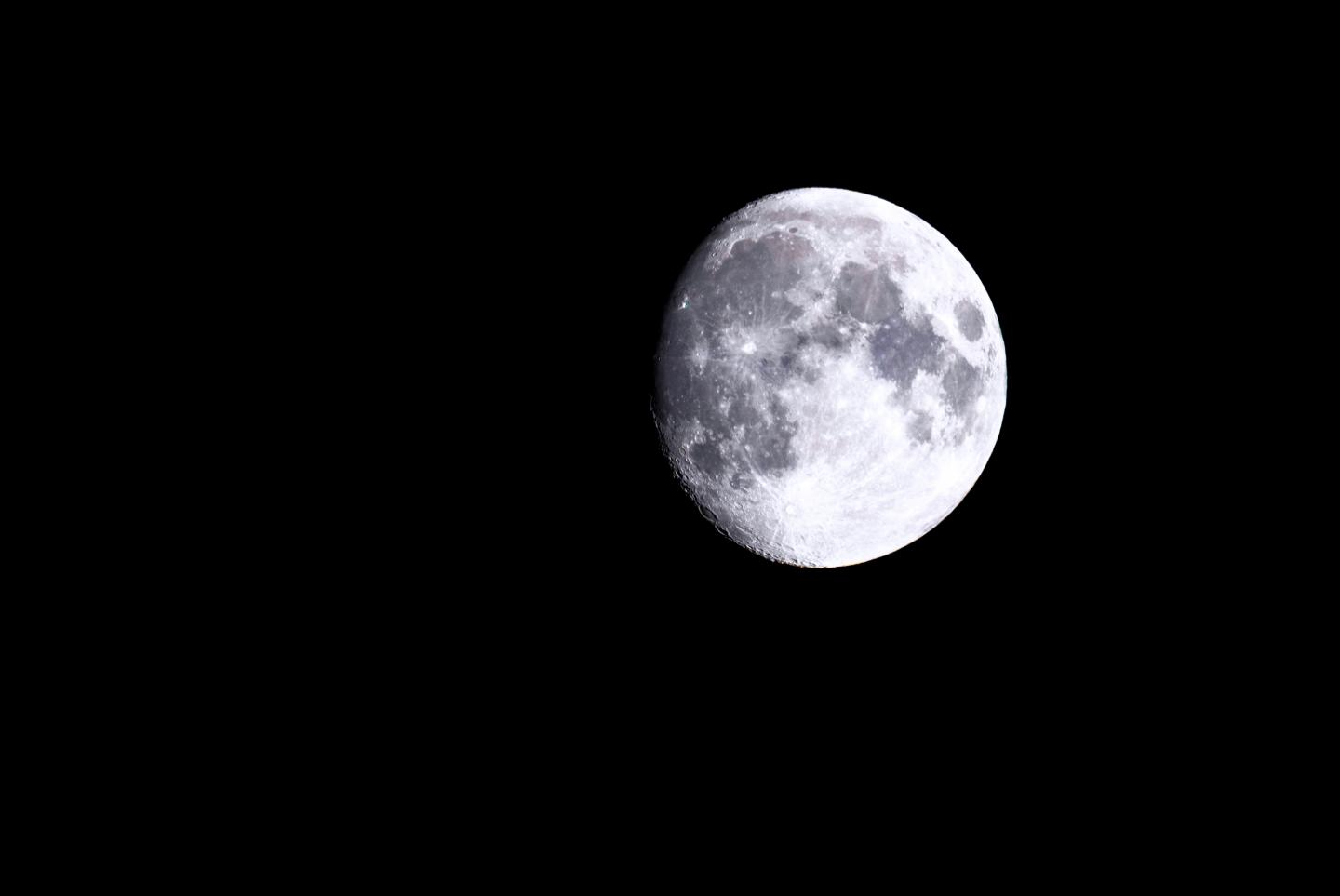The full moon may influence sleep and menstrual cycles, scientists say
Is there some science in these old-school myths?
Breaking space news, the latest updates on rocket launches, skywatching events and more!
You are now subscribed
Your newsletter sign-up was successful
Want to add more newsletters?

Delivered daily
Daily Newsletter
Breaking space news, the latest updates on rocket launches, skywatching events and more!

Once a month
Watch This Space
Sign up to our monthly entertainment newsletter to keep up with all our coverage of the latest sci-fi and space movies, tv shows, games and books.

Once a week
Night Sky This Week
Discover this week's must-see night sky events, moon phases, and stunning astrophotos. Sign up for our skywatching newsletter and explore the universe with us!

Twice a month
Strange New Words
Space.com's Sci-Fi Reader's Club. Read a sci-fi short story every month and join a virtual community of fellow science fiction fans!
Does the full moon change how we sleep? Does it synchronize with menstrual cycles?
What might sound like old-school myths might actually hold some truth. People go to bed later and sleep fewer hours before a full moon and menstrual cycles seem to temporarily synchronize with moon cycles, scientists have found in two new studies.
Throughout history, humans have connected our daily lives to the changing skies, specifically the changing faces of the moon. Lore surrounding the moon's phases has ranged from full moons inciting werewolves to the moon's cycle affecting how we feel and our day-to-day moods.
But, strangely, a couple of these tall tales seem to have roots in real science.
Related: The moon: 10 surprising lunar facts
Sleeping with the full moon
In a study published today (Jan. 27) in the journal Science Advances, a team of scientists from the University of Washington, the National University of Quilmes in Argentina and Yale University show how sleep cycles seem to change with the lunar cycle.
They found that, in the days leading up to a full moon, people tend to go to sleep later and sleep for fewer hours. For this work, the team studied college students in the city of Seattle, Washington, and also with those living in indigenous communities in northern Argentina, two different environments where there is a variety in individual access to electricity because of how artificial light might affect the participants.
Breaking space news, the latest updates on rocket launches, skywatching events and more!
Using sleep-monitoring wrist devices, they studied 98 individuals living in three Toba-Qom indigenous communities in Formosa, Argentina and additionally used sleep data from 464 college students in the Seattle area (the data from the college students was originally collected for a separate study).
The team found that, while the connection between sleep cycles and lunar cycles is a bit more obvious in communities without electricity access, the connection still seems to be present in areas with electricity as well.
"We see a clear lunar modulation of sleep, with sleep decreasing and a later onset of sleep in the days preceding a full moon," lead author Horacio de la Iglesia, a professor of biology at the University of Washington, said in a statement. "And although the effect is more robust in communities without access to electricity, the effect is present in communities with electricity, including undergraduates at the University of Washington."
In these groups, they showed that the nights leading up to a full moon was when people slept the least and went to bed the latest. These nights also had more light in the night sky after dusk as the waxing moon got brighter.
"We hypothesize that the patterns we observed are an innate adaptation that allowed our ancestors to take advantage of this natural source of evening light that occurred at a specific time during the lunar cycle," study author Leandro Casiraghi, a University of Washington postdoctoral researcher in the biology department.
Menstrual and lunar cycles
Sleep cycles aren't the only human function that seems to be affected by the moon, scientists are finding. This is not a new notion. In fact, for a long time, people have suggested that there is a connection between lunar and menstrual cycles, some myths even suggesting that fertility and lunar cycles have some sort of connection, a controversial tale.
In a separate study, also published today in Science Advances, researchers showed that, while all of the myths surrounding this connection might not hold up, there could be some link between menstrual cycles and moon cycles.
By analyzing menstrual cycle records that 22 women kept for up to 32 years. They examined long-term data on menstrual cycle onset with data averaging a length of 15 years and including information from women both under and over age 35. They compared this data with fluctuations in the lunar cycles to see how the two lined up.
They found that, of the women who participated, those whose menstrual cycles last longer than 27 days showed "intermittently synchronized with cycles that affect the intensity of moonlight," according to a statement. The team determined that this synchronization was slowly lost over time as the participants grew older, and found that the link was lessened with increased exposure to artificial light.
More specifically, they concluded that "menstrual cycles also aligned with the tropical month (the 27.32 days it takes the moon to pass twice through the same equinox point) 13.1% of the time in women 35 years and younger and 17.7% of the time in women over 35, suggesting that menstruation is also affected by shifts in the moon’s gravimetric forces," according to the statement.
Email Chelsea Gohd at cgohd@space.com or follow her on Twitter @chelsea_gohd. Follow us on Twitter @Spacedotcom and on Facebook.

Chelsea “Foxanne” Gohd joined Space.com in 2018 and is now a Senior Writer, writing about everything from climate change to planetary science and human spaceflight in both articles and on-camera in videos. With a degree in Public Health and biological sciences, Chelsea has written and worked for institutions including the American Museum of Natural History, Scientific American, Discover Magazine Blog, Astronomy Magazine and Live Science. When not writing, editing or filming something space-y, Chelsea "Foxanne" Gohd is writing music and performing as Foxanne, even launching a song to space in 2021 with Inspiration4. You can follow her on Twitter @chelsea_gohd and @foxannemusic.

